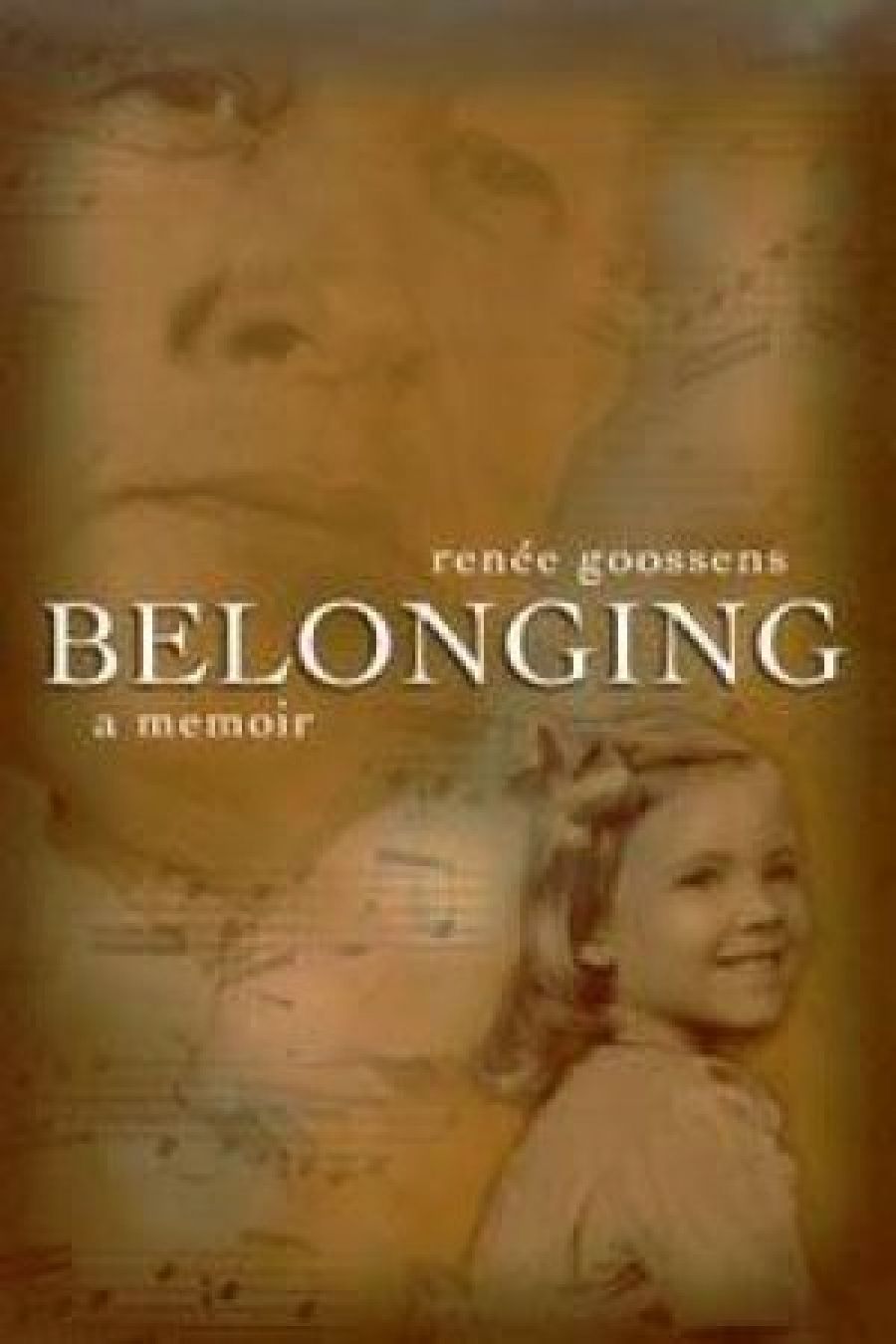
- Free Article: No
- Contents Category: Memoir
- Review Article: Yes
- Article Title: Surviving a Father
- Online Only: No
- Custom Highlight Text:
Renée Goossens, born in 1940, is the youngest daughter of the composer and conductor Sir Eugene Goossens. Married three times, he had three daughters with Dorothy Millar, and two more with his second wife, and Renée’s mother, Janet Lewis. His third marriage, to Marjorie Foulkrod, was childless. It is characteristic of this memoir that Renée Goossens remarks early in the narrative that she never met one of her half-sisters and that it was decades before she met the other two. Her life seems to have been marked or scarred by a series of disappearances on the part of significant family members and by unexplained absences.
- Book 1 Title: Belonging
- Book 1 Subtitle: A memoir
- Book 1 Biblio: ABC Books, $27.95 pb, 284 pp
- Book 1 Cover Small (400 x 600):

- Book 1 Cover (800 x 1200):

Ostensibly privileged, Renée endured periods as a child and particularly as an adolescent that were often as emotionally bleak as Albert Facey’s. The two are polar opposites in terms of class, but the comparison with Facey could be extended to the style of this memoir, which makes a similar impression of artless record. This form of writing works well when Goossens is describing the strange behaviour of adults from a child’s point of view, enhancing the overall impression of vulnerability to obscure forces that seemed benign yet were malign in effect. But it becomes less effective later in the narrative, which is not focused on these primary experiences.
On the one hand, Renée’s adored father encouraged her love of music and especially opera, and inspired her with pride in his genius; on the other, he was mostly emotionally inaccessible. He was no doubt the most important figure in her childhood, but, like most of the other adults in her life, he remained baffling. Even later, when a scandal involving pornography forced him to leave Australia, and when he was reduced to working mainly in Eastern Europe, his few postcards to her were confined to surface details about his life. Renée learned about his disgrace in 1956 – belatedly and second-hand. Later, she discovered something of the truth from newspaper files. She learned of her father’s death from a radio announcement while she was in hospital recovering from a car accident. In one of the curious twists in this extraordinary story of parental neglect, Eugene reappeared in London after years of absence at the very moment when, at eighteen, Renée was on the point of winning a scholarship to study for entrance to the University of Oxford. His unexplained refusal to pay for one-third of the means-tested scholarship resulted in her losing this opportunity. ‘I found it difficult to understand,’ she comments. ‘I was extremely angry, as if the unfairness of having a parent suddenly outweighed any possible advantage.’ Understanding of her father’s actual poverty had to wait until the publication of his biography by Carole Rosen in 1993.
Eugene Goossens is positively caring, however, compared to some of the other adults in the book. His third wife, referred to throughout as ‘Stepmother’, seems to have taken readily to the role traditionally assigned such women in fairy stories. When the family left for Sydney in 1947, Renée’s mother, who had previously lived with them, inexplicably stayed behind in London and for twelve years remained invisible and silent as far as her daughter was concerned. The nanny who had been Renée’s surrogate mother accompanied them, however, only to depart suddenly a few months later without explanation or farewell. Gradually, notwithstanding the absence of warmth in her relationship with ‘Stepmother’, and her father’s emotional distance, Renée settled into life in Sydney, making friends at the Conservatorium and at school. Opera became a passion that served her well in the future. This episode of relative happiness came to an abrupt end when ‘Stepmother’ insisted on taking Renée to France when she was fifteen, ostensibly to improve her French but actually to escape from a marriage she found distasteful.
The subsequent years, when Renée was imprisoned in a Catholic boarding school in Paris, make for grim reading. We have become familiar in this country with stories of the suffering imposed on children by Irish Catholic religious, but the French, according to this narrative, were equally severe, ignorant, and prudish. Renée was trapped in a foreign country while still not fluent in the language. Meanwhile, ‘Stepmother’ had secretly decreed that Renée’s letters to her family should not be posted and that those from her father and sister should be withheld. Later still, the fees owing to the convent were not paid and she was forced to help pay her way by peeling vegetables. It would be pleasant to record that her eventual reunion with her mother restored something of the affection that children normally receive from parents, but even this proved brief and baffling. Worse still, this mother had a particularly cruel message from the past to impart. True or false, it inserted itself into the prevailing system of secrecy, neglect, and imposed alienation.
Fortunately, Belonging features some generous individuals outside the family, who provided support during Renée’s subsequent devastating misfortunes. Eventually, she won through to independence and returned to Sydney. Her memoir will fascinate readers interested in Australia’s musical history, as well as general readers of life-writing.


Comments powered by CComment